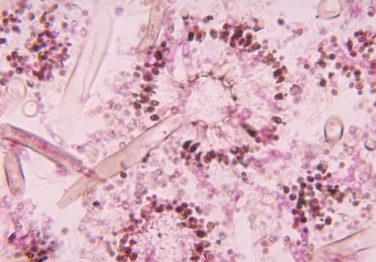PHILADELPHIA (FRONTLINE MEDICAL NEWS) – Participation in a dedicated young adult service significantly reduced the incidence of late rejection graft loss among young kidney transplant recipients.
Of 93 kidney transplant recipients aged 18 to 29 years who were transplanted between 2005 and 2014 at a single center, 47 participated in the service, which involved a dedicated clinical team that worked to maintain continuity of care for participants. Graft loss occurred in 2 participants (4%), compared with 8 non-participants (17%), and late rejection occurred in 1 participant (2%), compared with 6 non-participants (13%), Dr. Jeroen Bastiaan van der Net and Dr. Paul N. Harden reported in a poster at the annual meeting of the American Society of Nephrology.
The young adult service clinical team included a key physician, a nurse practitioner, and a youth worker who together provided care and support in community-based settings, such as universities and sports clubs, using a youth club-type format. The service promoted peer interaction through group social events such as bowling and other leisure activities, according to Dr. van der Net and Dr. Harden, both of Oxford University Hospitals, National Health Service Trust, United Kingdom.
“Non-adherence results in the poorest 5-year allograft survival rates in 18-29-year-old kidney transplant recipients, compared with other age categories,” they wrote.
The current findings suggest that participating in a dedicated service can improve transplant survival, allowing for improved quality of life among young kidney transplant recipients, they said.
“Young adult patients are at a critical point in their educational, psychological, and professional development that will shape their future life. Increasing the survival of their transplants will lead to higher levels of education and employment rates, which will be financially beneficial to society,” Dr. Harden added in a press statement.
In a separate study, Dr Oleh Akchurin of Weill Cornell Medical College, New York, and his colleagues found that smart phones are also an effective means of improving medication adherence among young patients.
Among 34 pediatric kidney clinic patients aged 13 to 21 years who were surveyed for the cross-sectional pilot study, 93% had a smart phone, and although half said they used their phone for medication reminders, only 29% were aware of medical mobile applications that could help with reminders.
The patients included transplant recipients (60%) and patient with chronic kidney disease (40%).
Most continued to use traditional techniques for improving medication adherence, such as filling pillboxes and incorporating medications into their daily routines, the investigators reported in a poster.
Notably, 71% of 14 patients who used the phone for reminders had medication adherence of at least 90%, compared with 35% of 20 patients who did not use the phone for reminders.
Boys were more likely than girls to use their phones for medication reminders (53% of boys vs. 27% of girls). Similarly, young men in the dedicated young adult service study were also more likely than young women to participate (85% of participants were male vs. 44% of non-participants).
The authors of the smart phone study concluded that self initiated use of smart phones by adolescents is associated with better medication adherence. Caregiver involvement was also associated with better adherence, but the findings suggest that smart phones may be particularly helpful among more vulnerable patients with less parental involvement.
“Future effort will be directed toward identification of more specific characteristic of the smart phone use by adolescent with kidney disorder in order to develop cost- and clinically-effective interventions,” they wrote.
The authors of both studies reported having no disclosures.




